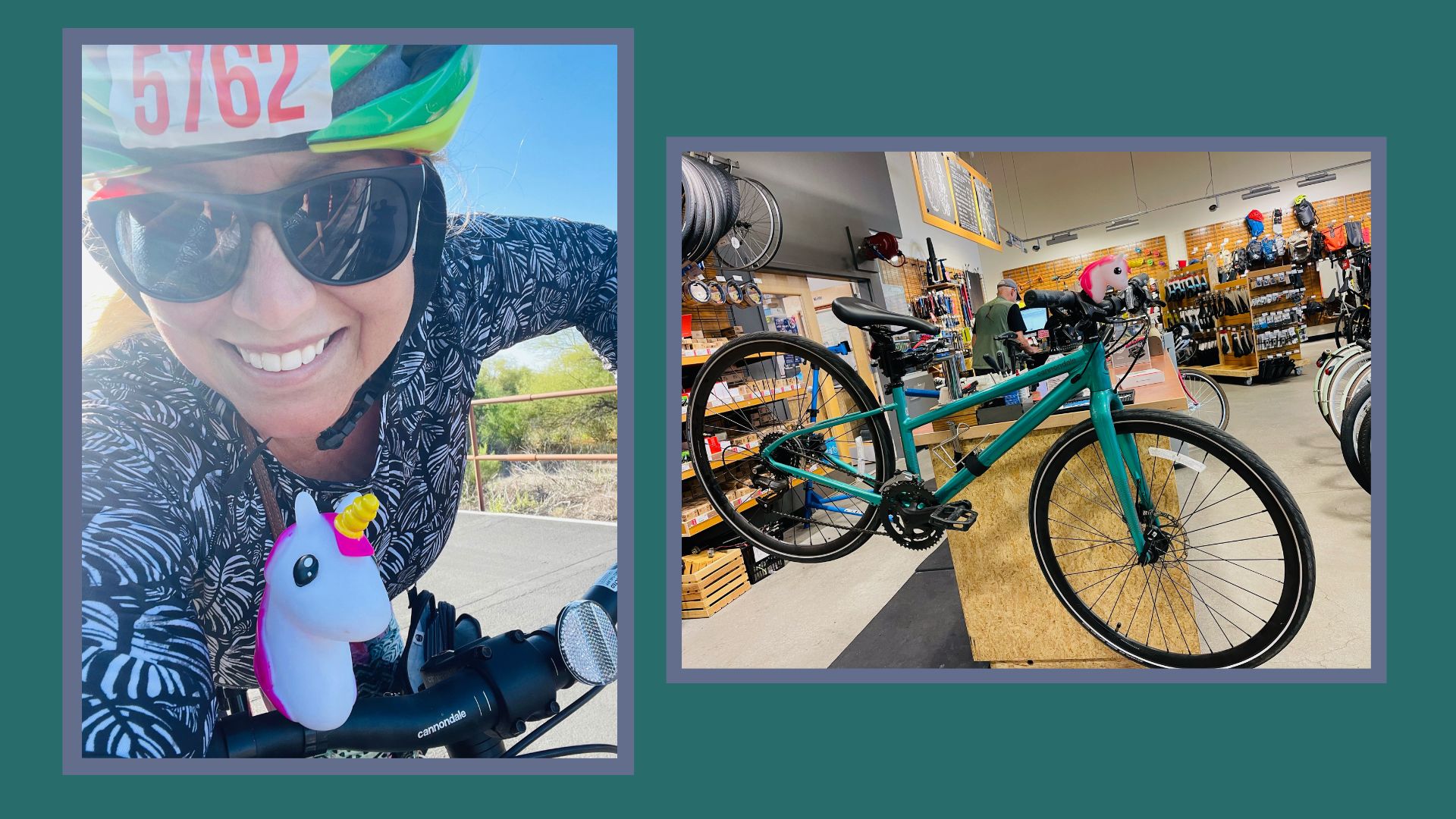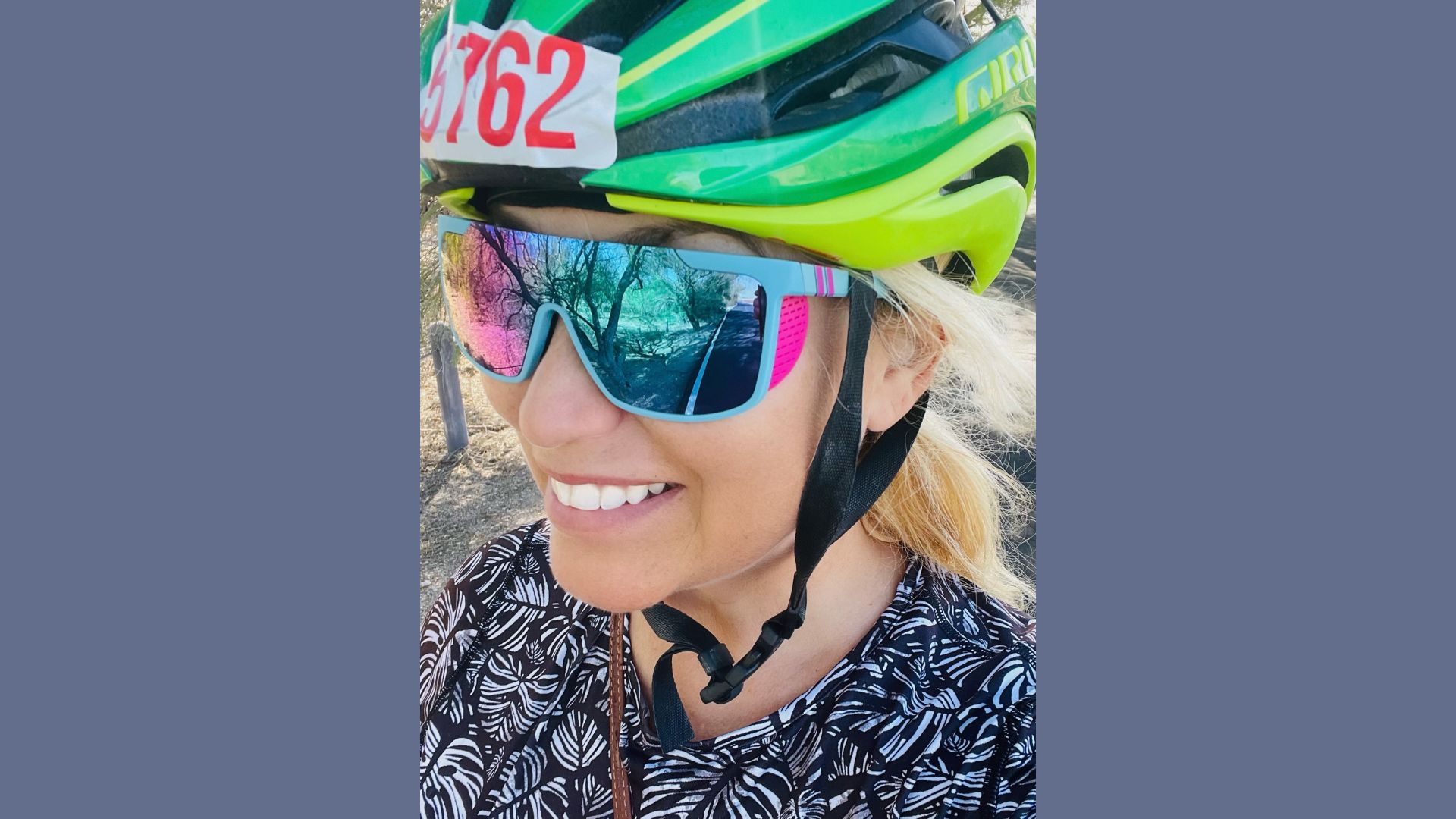I'm in my 50s and I cycle every day - these are the benefits I've found after almost 5 years on the road
The idea of cycling every day might seem like a challenge, but it has so many benefits for mental and physical health, as writer Tamara MC reveals to woman&home

Sign up to our free daily email for the latest royal and entertainment news, interesting opinion, expert advice on styling and beauty trends, and no-nonsense guides to the health and wellness questions you want answered.
You are now subscribed
Your newsletter sign-up was successful
Want to add more newsletters?

Daily (Mon-Sun)
woman&home Daily
Get all the latest beauty, fashion, home, health and wellbeing advice and trends, plus all the latest celebrity news and more.

Monthly
woman&home Royal Report
Get all the latest news from the Palace, including in-depth analysis, the best in royal fashion, and upcoming events from our royal experts.

Monthly
woman&home Book Club
Foster your love of reading with our all-new online book club, filled with editor picks, author insights and much more.

Monthly
woman&home Cosmic Report
Astrologer Kirsty Gallagher explores key astrological transits and themes, meditations, practices and crystals to help navigate the weeks ahead.
Cycling every day is a great cardio activity for improving your heart health while keeping your bones free from heavy impact. It can be a challenge for the heart and light relief for your joints. The fresh air is another plus, as is the freedom it can offer you. I should know, I've been cycling every day for the last five years, come rain or shine.
I first remember learning to ride a bike properly when I was four, ditching my stabilisers and rolling down the road. I rode my bike for pleasure and as a means of transportation throughout my school years, steering my bike like I was driving a fancy convertible, hair blowing in the wind. Riding my bike helped me feel like I had control when I had none at all, and it continued to be an important part of my life through my university degrees. I'd do cycling as a workout and ride home, my back heavy with books and wet from sweat.
At 52 years old, following multiple bouts of illness, leg injuries, and heartbreak in the last few years, I'm riding my bike more than ever before. I tie my shoes, slather myself in stinky sunscreen during the summer, pop my helmet on, and blaze out the door. I’ve learned a lot about myself in that time.
What I learnt cycling every day
1. Cycling helps recover from injuries
Toward the end of 2019, I tore my hamstring falling down a flight of stairs to hand my grown-up son his water bottle. Before that point, I was walking 30 minutes a day and enjoying all the benefits of running there were to be had, but I couldn't even run a few metres with the tear. Recovery was slow - I kept thinking just one more week and I'd be able to jog again, but that didn't happen. Of course, I still had my trusty bike.
I decided to build up my hamstrings by riding my bike. It took 10 months for the muscle to heal enough to jog half a mile, but even when I was back to running, I kept on cycling.
When I contracted Covid-19 during the pandemic, I became very sick, running a 104°F temperature for days and subsequently suffering from multiple secondary infections. When I was starting to get better, I rode. I believed cycling would help with my cardiovascular health and pull me through the sickness with healthier lungs.
While everyone is different, this recovery strategy works for many people, says Brian Maiorano, a triathlon coach and cycling specialist. "People need some cardio activity while recovering from injury, and cycling is a great choice because it's not weight-bearing on the legs," he says. "There's no explosive force such as that caused by running or sports where we jump. This results in less strain on the legs as well."
Sign up to our free daily email for the latest royal and entertainment news, interesting opinion, expert advice on styling and beauty trends, and no-nonsense guides to the health and wellness questions you want answered.
Since then, I've had other injuries - a torn psoas muscle, plantar fasciitis from playing pickleball, and several throat and ear infections. Through it all, cycling has been my constant.
"Cycling increases blood and oxygen to the injury site, which means the injury heals quicker," says Maiorano, who works with CORE, a wearable sports tech company. We can pedal at a higher pace and elevate our heart rate, too, without straining the heart or muscles too much.
2. Cycling helped me get through heartbreak
Going cycling every day even helped me work through heartbreak. Three months into the pandemic, my boyfriend and I split. Suddenly, I was single and alone for the first time in years, as my kids have grown up now.
At first, I missed my ex on my rides as we used to cycle together a lot, but then I realised cycling was magically mending my broken heart. I felt stronger with each bike ride and more solid in myself, despite feeling like I was on shaky ground.
I installed Strava (one of the best cycling apps, as reviewed by the woman&home team) on my phone to record my rides. Before I knew it, cycling became a personal challenge. I didn’t want to miss a day and mess up my record of riding every day, rain or shine, sickness or health. The consistency did wonders for my mental wellbeing.
3. Cycling is a commitment
Even if you’re afraid to commit to a relationship, you can’t be afraid to commit to your bike. My bike is my bestie, and we see each other every day. Commitment is work and a choice, and even on days when I don’t feel like riding, I shove myself out the door because I’ve made a promise to myself. I must ride. No excuses.
One of my biggest cycling tips would be not to talk yourself out of it. Though there may be challenges, there's so much positivity that comes from cycling every day.
As soon as I start riding, all my anxiety falls away. I’m right where I’m supposed to be - on my bike. The “before” can be difficult, but you must train your brain to do it anyway and to remember the “after” feels sublime. I feel like a million bucks after a ride.

Tamara rides every day in Tucson, Arizona.
4. There's no such thing as bad weather
Committing to cycling every day means you must ride on less-than-ideal days too, not just the sunny ones. I’ve learned to embrace the weather over the last few years, and I enjoy the sensation of raindrops on my cheeks and the sun beating down on my head whenever I'm out.
I just tell myself, “It’s only water,” or “I’m getting my dose of Vitamin D.” I live in the desert in Arizona, USA, so the heat can be overwhelming, but I adapt my riding schedule to make it work. During the summer, I get on my bike by 6 AM. As the seasons change, I change my schedule accordingly. Of course, I always make sure I'm careful and never go out when it’s dangerous, but I also don’t let the weather be a constant deterrent.
5. You need some essentials to cycle - but the basics is fine
When it comes to cycling every day, you really don't need a lot. A good bike and helmet that's are right size for you are essential, as is a decent pair of workout leggings or bib shorts and a full-coverage top that'll protect you from the wind and cold temperatures as well as the sun.
Maiorano agrees. "A great-fitting bike and saddle are essential for enjoying cycling. A bad fit will make you give up the sport very quickly, so buy a bike from a performance-oriented bike shop with a reputation for good fittings, even if you're not buying a racing bike. They will be able to adjust the bike so it fits your body and your ability."
I still don’t wear fancy bibs or biking shorts, though, just a few pairs of workout leggings. I am tempted by the bright colours and extra support, though, so watch this space.
6. Cycling is the path of least resistance
One of the other reasons why I love riding my bike is that it's immediate exercise. I don't have to get in my car and drive to the gym, I can jump on my bike from my front door. This saves me time, meaning I'm more likely to get my ride in even on a busy day, but it creates less resistance because I know it'll only take me about five minutes to prep and get out the door. When it comes to motivation to exercise, this is pretty key.
My simple routine includes: Foam rolling my back to make sure it's limber and ready to ride, drinking water with added electrolytes so I don't have to carry anything, and applying sunscreen, putting my helmet and sunglasses on, and starting to record on Strava.
7. Cycling offers easy solitude
I know many people ride in groups, but I love cycling solo. I don’t need anyone, and I'm happy alone on the roads. I can just get up and go anytime I’m free, and being by myself gives me time to clear my mind.
Most of the time, I don’t wear exercise headphones and just listen to the sounds of birds, crickets, or whatever other sounds nature offers. Or I'm in my head, using my time on the road to work out life's challenges. It's an important opportunity for head space for me. I can think about my problems and think up solutions in one go, meaning they don't compound.
It's one of the cycling benefits that others enjoy too. "People who do endurance sports cherish the ability to 'zone out', to clear their mind of chatter and baggage by focusing on their breathing. As it's a lower-intensity sport than running, for example, there's less physical discomfort, which makes it great for this," says the coach.
"Plus, on a scenic open road with few traffic hazards, it's easy to forget your problems, enjoy your surroundings, and appreciate the fact you're doing something great for your body," he says.
8. A bike ride is the perfect opportunity to educate yourself
When I do wear headphones, my favourite thing to do is listen to podcasts. Usually, right after I hit record on Strava, I hit play on a podcast I’m dying to listen to. As I don't live in a busy area with lots of traffic, I can do this.
It's time away from my desk and life's other responsibilities that's just for me, so I like to use it to learn something new or hear an alternative perspective on a topic.
The bottom line
Even though I’ve experienced many benefits of cycling every day, I don’t feel like it's a total full-body workout. I still go to the gym for my arms and abs, and I do swimming workouts, I run, and I walk the dog. Each activity has its advantages, but cycling transports me to my childhood, and even if momentarily, I return to the feeling of wonder and awe. That feeling of being wild and free. When I’m on my bike, it’s just me and the wind with only my legs propelling me forward.
Of course, the cardiovascular and muscle benefits are among my reasons for cycling every day as well. Through heartbreak, torn muscles, illness, a pandemic, and bad feet, cycling has proven to be my tried-and-true bestie, my ride-or-die.
Is it okay to cycle every day?
Yes, you can cycle every day if you want to switch out your early morning walk for a cycle or try a new way to commute. The NHS recommends 150 minutes of moderate intensity exercise every week, which you could do by cycling just 30 minutes a day for five days.
However, it's ultimately down to personal preference. There's no need to cycle every day if you find that commitment too much in your routine.
Cycling just a couple of times a week has been shown to make a hugely positive difference. For example, a study by the University of Reading shows you can boost cognitive health and overall wellbeing by cycling three times a week for 30 minutes.
Dr Tamara MC was raised by a single mother, one of the first female raquetball players at her community club. Tamara her followed in her mother's footsteps and spent her whole life working out regularly. She cycles, plays tennis and pickleball, runs, and rollerskates. She turned 51 this past year and is a single, empty-nesting mama to two amazing boys and a grandmama to two adorable pups.

